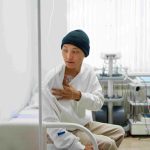This is my sixth article and the third in the series. This will be based on the responsibility of community.
Who is the Community?
Firstly, who is the community? Personally, I feel from a patient’s point of view it is the neighbours, employers, your district, town or city. It is anyone who can extend a helping hand towards a cancer patient’s journey.
What Kind of Help Can Patients Expect?
Patients’ biggest setback or burden is finance. Cancer is expensive. It causes so many unexpected strains on the income, more so if patients have to temporarily stop working. Money now has to include the ability to purchase nutritious food, the numerous trips to hospitals, child or adult care. Channelling patients to the various NGOs in existence is essential as they provide financial and medical aid.
The Role of Support Networks
Patients come in all shapes and forms differing in age, education. They now have to face a new world filled with bewildering terms, conditions and preparations. If the immediate family has nobody with any medical knowledge, it may be beneficial if a friend, colleague or neighbour can or is willing to accompany them to hospital.
In my years as a navigator I found the biggest permanent support the patients received are neighbours, extended family members or organisations who can support physically or emotionally.
Why Sharing Responsibilities Matters
Treatment and care of patients may take a year or longer. So others in the family must share the responsibility irrespective of gender. Cooking, keeping hospital hospitable, accompanying patients for treatment, investigations, keeping patients entertained can be a burden for a caregiver when singly handled.
Unexpected Help Can Appear
Actually assistance can be sourced from the most unexpected quarters if families are prepared to approach these untapped sources.
Care in point: A mother from a neighbouring state, a teacher soon going for a mastectomy. Her husband, an engineer, working in Singapore, home only on weekends. Daughter, 10 years old, studying at the same school as mum, has extra-curricular classes and tuition. Problem was, small town, so no transport for daughter.
The Solution
Did the daughter’s full timetable with address, days, time to pick up and drop off. Place was left for parents willing to pick or drop with contact number. Headmistress’ consent was obtained and the timetable was displayed on the notice board. The outcome was within a few days, all the slots were filled. Patient and family were grateful and the school learned to provide help to needy students.
What Makes Caregivers Burn Out?
What makes caregivers depressed, stressed and sometimes, in extreme cases, quit? Biggest reason is not being appreciated, overtaxed, no time to relax and rejuvenate themselves. Most caregivers sacrifice their time, money. Some caregivers gave up their jobs on the promise by siblings that they will be paid monthly. Caregivers were paid for a few months and then no payment was made.
Some, because of patients’ needs, leave their own family and move in with patients. When caregivers’ own family face a crisis, loss of income or support, caregivers face compassion fatigue, sadness and emotional confusion on what is best for all concerned.
Setting Boundaries as a Caregiver
Patients and families place demands that are impossible, and trying for the caregivers to fulfil. Massages, special food cooked to specific wishes and being constantly on call does create a toll on caregivers. Even if everything is perfect to patient’s request, no appreciation is extended. Family, neighbours sometimes further reiterate the importance of doing the best and being constant in the aid their caregivers provide patients.
So what can caregivers do? Set boundaries and limit time that you can spend with your families. Know your strengths and stop working unnecessarily.
Involving Everyone
One member of the family may understand the medical terms, the preparation before a biopsy or operation. So best to let that person accompany patients to hospital. Many unproductive sellers will approach. They must know how to deal with them.
Caregivers should allow the youth and children in the family to be with patients. Reciting or teaching songs, family history is a good way to bond. Also introduce the patient to new skills with the handphone. Watch movies as a family and create lots of memories. All ages can play a part in the healing. Simply hugging, saying ‘I love you’, sharing, appreciating makes the days go by in a positive manner.
The Journey Together
At the end of the day, it is patients, caregivers and family who determine how the journey ends. Is it with the support of healthcare professionals, caregivers and patients? Everyone has a role.
Patients do have many challenges. However, caregivers’ support provides patients with the will and determination to complete their journey. In the waiting rooms, clinics and wards, patients with good family support are normally more cheerful, accepting of treatment, and finish their journey more successfully.
A Final Word
So let caregivers and patients move positively forward hand in hand. Appreciate, enjoy this special time which will create bonds beyond belief. Let us call our caregiver and give thanks.






